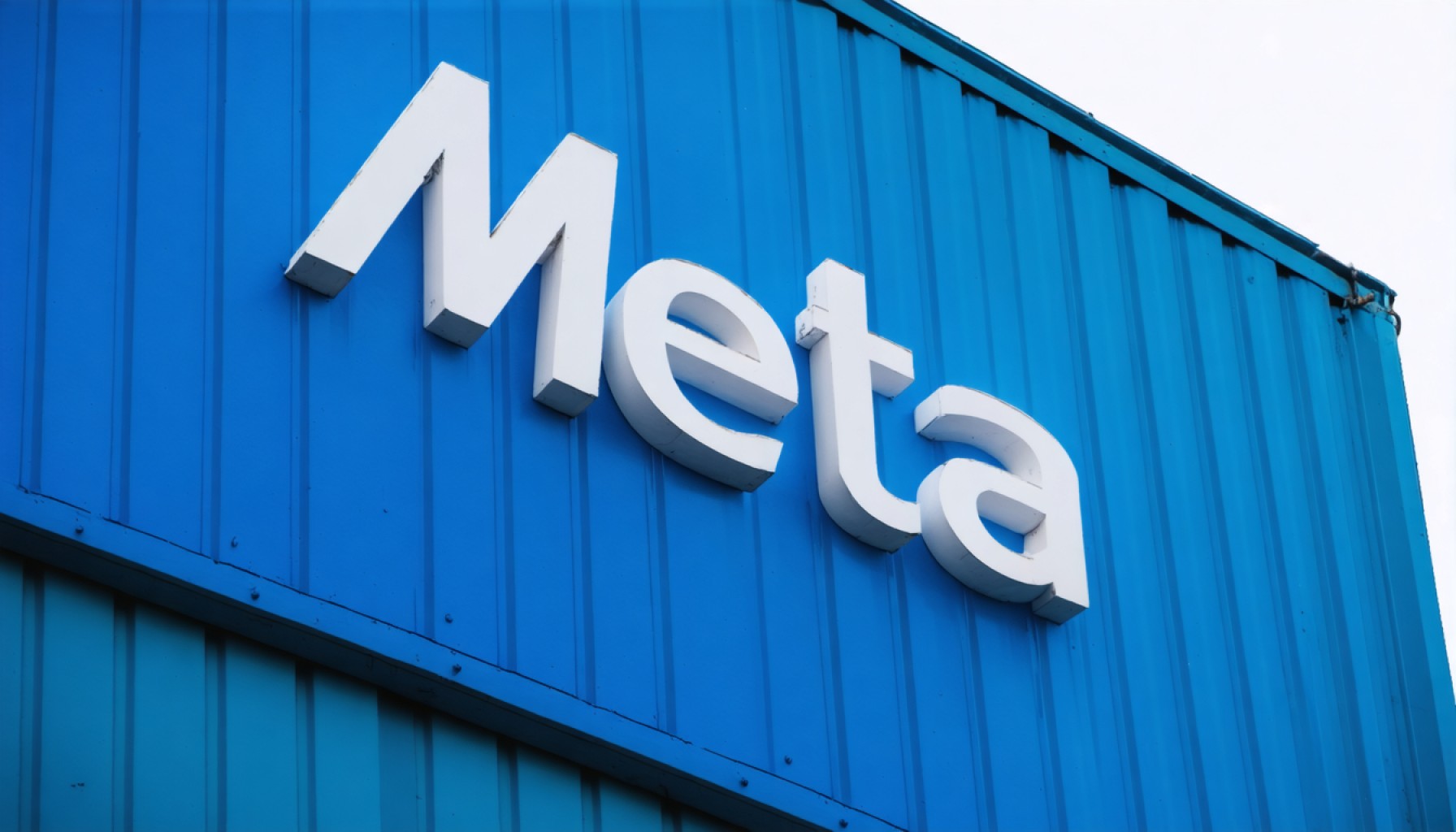
- Meta Platforms plans a 10% reduction in annual stock option distributions, affecting many employees, despite reaching record stock prices.
- These equity refreshers, crucial for employee compensation, vest quarterly over four years alongside salaries and bonuses.
- The increase in stock prices followed a U.S. Supreme Court decision supporting a TikTok ban and CEO Mark Zuckerberg’s commitment to invest $65 billion in AI infrastructure.
- Meta’s share price saw a slight 1.3% decline amidst news of potential layoffs targeting 5% of low-performing staff.
- The company delivered strong Q4 results but faces uncertainties over its Q1 sales forecast, highlighting tensions between AI investment and financial discipline.
- Meta navigates a delicate balance between pursuing ambitious technological growth and maintaining fiscal caution to achieve long-term goals.
A twist of irony echoes through the corridors of Meta Platforms, where a 10% cut in annual stock option distributions looms over tens of thousands, even as the company’s shares climb to record peaks. These equity refreshers, vesting quarterly over four years, form a vital piece of compensation alongside standard salaries and bonuses for Meta’s workforce.
Despite jubilant celebrations on the trading floor, where shares soared post-January 17 following the U.S. Supreme Court’s decision to sustain a TikTok ban, the mood at Meta hints at cautious recalibration. The surge was bolstered by CEO Mark Zuckerberg’s assertive pledge to pour up to $65 billion into AI infrastructure, a gesture affirming his vision of a future driven by artificial intelligence.
Thursday came with a tinge of surprise, as Meta’s share price dipped slightly by 1.3%, settling at $694.80. This jolt served as a reminder of January’s revelation: a plan to shed approximately 5% of the company’s lowest-performing employees. Promises of rehiring were made, yet whispers of further job cuts in 2025 linger, a strategy to sharpen performance standards.
Amid an impressive Q4 performance that sailed past Wall Street predictions, concerns brew over the company’s Q1 sales forecast, casting shadows over the financial prudence of its AI ventures. Meta’s recent maneuvers underscore a strategic balancing act: maintaining its aggressive investment in technology while upholding stringent financial discipline.
In an era where technological advancement tugs against financial restraint, Meta’s actions convey a clear message—bold visions require calculated sacrifices. As it straddles the thin line between ambition and prudence, the coming months may reveal whether this dance will fortify or fracture the tech giant’s towering dreams.
Meta’s Stock Options Cut: What It Means for Employees and the Company’s Future
How-To Steps & Life Hacks for Navigating Stock Options at Meta
For employees at Meta facing a 10% cut in annual stock option distributions, it’s crucial to understand how this impacts your overall compensation package. Here’s a quick guide to navigating this situation:
1. Evaluate Your Total Compensation: Consider your base salary, bonuses, and remaining stock options. This holistic view will help you assess your financial health.
2. Portfolio Diversification: If stock options form a significant part of your compensation, diversify your investments beyond your employer’s stock to mitigate risk.
3. Financial Planning: Consult a financial advisor to understand the implications of the stock option cuts and make adjustments to your long-term financial goals.
4. Stay Informed: Keep track of Meta’s financial health and future forecasts. Knowledge of potential layoffs or changes in the company’s strategy can help you make proactive career decisions.
Real-World Use Cases of AI Investment by Meta
Meta’s commitment to investing up to $65 billion in AI infrastructure highlights several potential real-world applications:
– Social Media Enhancement: AI can improve user experience on platforms like Facebook and Instagram through personalized content and better ad targeting.
– Metaverse Development: AI technologies can advance virtual reality environments, creating more immersive digital spaces for users.
– Content Moderation: AI tools can automate the detection and removal of harmful content, ensuring safer platforms.
– AI Research and Innovation: By innovating in AI research, Meta can contribute broadly to technological advancements, influencing industries beyond social media.
Market Forecasts & Industry Trends
The market’s bullish outlook on AI could greatly benefit Meta if strategic investments pay off. According to a report by McKinsey, AI is poised to add $13 trillion to the global economy by 2030. Meta’s investments place them at the forefront of this trend, expanding opportunities in machine learning, data analytics, and AI-driven businesses.
Reviews & Comparisons
Meta’s strategy contrasts with other tech giants like Google and Amazon, who also heavily invest in AI but have shown greater restraint in employee compensation adjustments. Meta’s approach reflects a high-risk, high-reward strategy that depends on rapid AI integration to justify current sacrifices.
Controversies & Limitations
1. Employee Morale: Cutting stock options can affect morale and retention, particularly for high-performing employees who may see this as a diminishing incentive.
2. Financial Risk: The large-scale investment in AI poses significant financial risks. If investments do not yield expected returns, Meta may face financial strain impacting its ability to innovate and grow.
Features, Specs & Pricing
Meta’s stock options vest quarterly over four years, which is a standard and practical scheduling approach allowing employees periodic access to equity rewards. However, the 10% reduction impacts the potential wealth accumulation for long-term employees.
Security & Sustainability
In the push towards AI, ensuring system security remains a top priority for Meta. Increased reliance on AI necessitates robust cybersecurity measures to protect corporate and user data harnessed by AI technologies.
Insights & Predictions
Despite a short-term hiccup with the reduction of stock options, Meta’s aggressive AI strategy may yield significant market advantages. Experts speculate that by 2025, if Meta successfully integrates AI into its product lineup, it could greatly enhance user engagement and capture more advertising revenue.
Pros & Cons Overview
Pros:
– Strong potential for AI-driven growth.
– Maintains competitive edge in technology innovations.
Cons:
– Risk of tarnishing employee relations and morale.
– Financial instability due to AI investments if it does not result in anticipated returns.
Actionable Recommendations
1. Consider Other Growth Avenues: For employees and investors, look beyond stock options for other growth areas within Meta or the tech sector.
2. Stay Ahead in Skills: Employees should focus on enhancing skills in AI and related fields to align with Meta’s strategic direction and future-proof their careers.
3. Monitor Market Trends: Keeping abreast of industry trends can provide insights into Meta’s trajectory and impact on your personal and financial planning.
For further updates and insights into Meta Platforms, visit [Meta’s website](https://about.fb.com).
Remember, as Meta sites a future in AI, dynamic adaptation and proactive investment are key to navigating these changes effectively.



